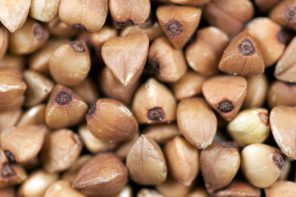Lowering your fat intake can be a healthier option for you – but not always. It might even set back your weight-loss goals. Read on to learn the fat facts before you cut fat out of your diet completely or embark on a low-fat diet.
The Problem with Less Fat
If you feel good about your latest grocery shopping trip consisting of many foods that have low amounts of fat in them, be sure that the fat content is not being substituted for sugar and carbohydrates to give the products flavour. Consuming too many carbohydrates means that they don’t get used for energy and are stored in the body as fat instead.
Fats Don’t Always Make You Fat
When people hear the word ‘fat’, they immediately think that it’s better for their weight management to avoid foods containing any of it. This is not the case. Fat is digested slowly and when it moves through the body it releases cholecystokinin, a hormone that helps you feel full and satisfied after a meal. If your meal contains no fat it could result in you feeling hungry soon afterwards, which is worsened by spiking glucose levels in the blood. You then risk eating more food and possibly overeating, leading to weight issues.
Why the Body Needs Some Fats
Important functions in the body require good fats. These include the transportation of vitamins, the absorption of nutrients, healthy cells and nerve transmission. In order to reap these benefits, make sure you consume enough good fats. These include:
- Monounsaturated fats that increase your good cholesterol (HDL) level and lower the bad one. They also keep your arteries safe from the build-up of plaque. You can find monounsaturated fats in a variety of foods, such as almonds, cashews, peanut butter, peanuts, avocados, sesame seeds, olive oil and olives.
- Polyunsaturated fats also lower bad cholesterol (LDL) and the bonus is that they have omega-3 fatty acids. These improve your mood, immunity and the functioning of your brain. Good sources are flaxseed, tofu and walnuts.
Low-Fat Food Can Be Misleading
A study by researchers at Cornell University Food and Brand Lab discovered that people who consumed low-fat diets ended up eating approximately 28 per cent more calories. The reason? They believed low-fat food choices had approximately 40 per cent less calories, when in reality they were only reducing 11 calories with every serving. Read low-fat food labels so that you can be more informed of exactly what you’re eating. Focus on a diet that contains good fats to sustain your body and make you feel satisfied.
Image here











